 survivors
survivors
INFORMATION TO EMPOWER YOU
 survivors
survivors
INFORMATION TO EMPOWER YOU
If you are a survivor, we hope this website will provide you with information that will empower you in understanding and responding to the physical, emotional, and spiritual impact of child abuse and neglect.
We are also willing to assist by answering any spiritual questions you may have or to help you find a professional who can help.
If you have any questions, please contact us.
Call 911 if you or someone you know is in crisis and needs immediate assistance.
Additional resources include:
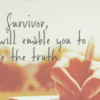
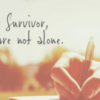
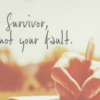
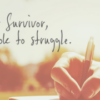

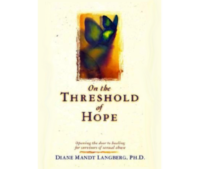

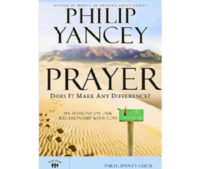

There is research suggesting boys may delay disclosing sexual abuse longer than girls—perhaps as long as 20 years. Studies indicate boys have myriad fears that keep them quiet including fears of being labeled weak or gay as a result of sexual abuse. In our society, we often make jokes about boys who are sexually abused by older girls or women. As a result, a boy sexually abused by a woman feels guilty for not “enjoying” the victimization. In designing church policies and in implementing personal safety programming, it is critical to keep in mind these differences and to specifically address fears that may be unique to boys.
Many survivors of abuse and neglect lead productive lives free of many of the adverse medical and mental health conditions previously discussed. How quickly, and to what extent a victim of abuse heals is dependent on a number of factors.
There is a body of research on resilience which finds that simple things such as keeping a child in school, getting them involved in sports, music and other activities that build self-esteem and model non-abusive responses to conflict can be very important. There is also a substantial body of research that maintaining a connection to faith, including a healthy sense of spirituality, can reduce the potential short and long term impact of abuse.
If your neighbor stole your car, you would report him to the police. Your abuser stole something from you much more valuable than a car. He stole a part of your very life and self from you. In doing so that person committed a crime and needs to suffer the consequences of his or her actions. It is not unforgiving or unchristian to report such a person. In fact, it is wise to do so. It forces the person to deal with the reality of what he or she did. It also reduces the likelihood that the person will abuse others in the future.
God established the church to help us forgive. He established the government to provide temporal justice and curb lawlessness in society. As Christians we enjoy the benefit of both realms.
Although it is appropriate to report your abuser to the authorities and otherwise take actions to prevent him or her from abusing other children, God’s Word does not require you to confront the abuser. Indeed, it may be physically or emotionally harmful to speak directly with the person who violated you. Even if an offender admits the abuse, he or she may continue to blame you for the abuse or otherwise make you feel responsible. The confrontation may also cause the offender to destroy evidence.
Sometimes, pastors and other Christians have told survivors to confront their abuser by citing the words of Jesus to go and show a fellow believer his or her faults (Matthew 18:15). However, this verse must be read in the context of all of the scriptures.
When Jesus was in danger of being killed by King Herod, God did not tell Joseph to confront the would-be killer of his son. Through an Angel, God told Joseph to flee and not return until it was safe to do so (Matthew 2:13). Although it is important for civil, criminal and church authorities to confront a child abuser, God does not require victims to place themselves in physical or emotional danger.
As noted in previous question Do I need to confront the person who abused me?, God’s Word does not require you to confront your abuser and doing so may place you in danger of physical or emotional harm. If you are contemplating confronting your abuser, it is wise to discuss this thoroughly with a competent counselor who is trained in working with survivors of child abuse and who is current with the literature.
A counselor can help you sort out the feelings you have about confronting the abuser and to assess the possible advantages and disadvantages of such a confrontation.
If you choose to go forward, it is wise to have one or more professional support persons with you that can stop the meeting if it is harming you and can help you process your emotions after the confrontation.
Visit our FFTC counselors page for resources that may help in finding a counselor.
HAVOCA provides support, friendship, and advice for any adult whose life has been affected by childhood abuse. HAVOCA
An organization committed to preventing, healing, and eliminating all forms of sexual victimization of boys and men through support, treatment, research, education, advocacy, and activism. Male Survivor
RAINN is the nation’s largest anti-sexual violence organization. Resources include a national hotline (800.656.HOPE), resources, information, and education and training. RAINN
Informational brochures and counselor information to help Christians make informed choices as they choose a mental health provider when suffering from abuse or addiction.
Standing Up for Children: A Christian Response to Child Abuse and Neglect. All churches and schools need to be safe places where leaders actively work to prevent abuse. Freedom for the Captives (FFTC) offers online training videos taught by experts Mr. Victor Vieth, director of education and research at Zero Abuse Project and Prof. John Schuetze, a seminary professor and counselor. To learn more, check our training webpage. To request the training for yourself or your group, please complete our online learning registration form.